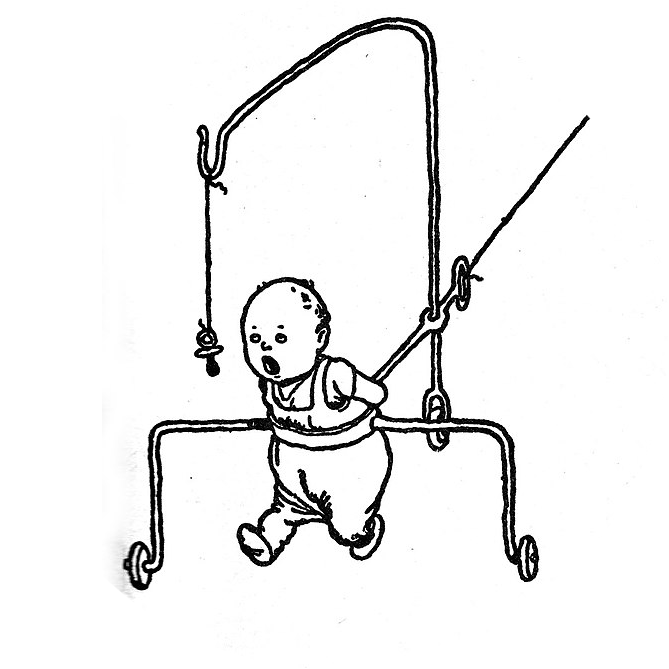One line, or a single riff… Round and round and round until something takes its place.
- 6 Posts
- 51 Comments

 7·6 days ago
7·6 days agoUnless you are taking the readings for a specific purpose under medical instruction, then so long as you’re consistent it probably doesn’t matter too much. You’ll get sufficient information to show any trends. - take readings throughout the day, that way you’ll get used to the process and your stress levels will fall giving more consistent numbers. Not a medic but have experience of BP measurement.

 1·19 days ago
1·19 days agoHaven’t they suffered enough?

 10·20 days ago
10·20 days agoPeople are strange. NT people are stranger. I too fail to move from positive first meeting to friend (whatever that is). - to be honest it’s something I’m not uncomfortable with. I don’t know what is said behind my back at work, but as I can be rather ferocious at times people tend to be careful. Being good at my job probably helps too.
One thing that did occur to me, and this is not meant to be offensive is that the uncanny valley may play a part. If you don’t know what this is, it started with humanoid robots that looked too human and they freaked people out, while non human robots were fine. If the masking isn’t perfect NTs can have a hard time with accepting, however people on the other side of the valley can be ‘endearingly eccentric’ and get along fine. I don’t mask anymore, I go for eccentric, it’s easier. It is however a fine line and even I have to pretend to be normal sometimes.
Getting diagnised: I suspected that I was ‘different’ for many years. I thought I was autistic for a few years but didn’t really admit it to myself. Finally I decided that I should get tested and stop hiding from it. I still only tell people on a need to know basis at the moment, but is an open secret.
Telling work: People at work know I’m not NT shall we say, but being in a technical field it’s kind of accepted. Work wise however it has held me back. I’ve been given (well meaning) opportunities that I’ve not been able to thrive with. Things are getting a little more cut throat nowadays, with more severe consequences, so I thought anything that I can do to preemptively rebalance the deck must be a good idea.
It means that I can have a conversation along the lines of “you know I’m going to have difficulty doing X with Y people, so I’ll need some support there, but you know I’ll do Z really well. Can we work something out?” Previously I’d just struggle with, and probably fail the whole task, benefitting noone. I’d get over stressed so probably fail other things too. To be absolutely honest, I’m too old and too tired for that shit. Another aspect is that being professional is communicating where you are not able to do a task to a high enough standard. The diagnosis allows me to do this in an open and constructive way.
What do I expect to happen from this? Not much, immediately other than an amount of ‘process’.
I don’t currently need adjustments and am reasonably good at my job, so don’t have major worries right now. However, things can change. I may be given a task that would be easy for an NT, but very difficult for me to do. This could affect my performance, with potential negative consequences over several years. Now the company knows, we can work something out to mutual benefit, otherwise I’d be in trouble.
To say I want to weaponise my diagnosis would be unfair, but if I can fairly use it to help me exist in an NT corporate environment, where otherwise I’d have difficulties, then I think I’m taking the sensible approach. Time will tell. In the UK, compared to perhaps other less civilised places, we have a degree of legal protection, but it is a two way street.

 3·1 month ago
3·1 month agoI’ve done what I call a ‘good engineering fix’ to a garage door opener. It now works fine on my bench power supply and the fob needs its surface Mount switches replacing so requires a knack to use.
It functions, I understand how it failed and what I need to do to make it work properly… So job done!
It’ll now live in my pile of technical crap for the next decade.

 11·1 month ago
11·1 month agoWhile I have no experience of healthcare, I know that office politics and culture can be a nightmare in any workplace. What I also know is that we are or own ‘brands’ and if we want to be good at anything we need to develop ourselves as we see fit. This is part of being professional. You choose to do it in work break hours where you have the time and maybe are less tied. Maybe it gives you access to people who can help when you need it. All this is good, but I think it’s worth noting that you will miss out on some of the office culture (for better or worse). Professionalism is as much about what you know as well as your network, and people make snap judgements about others. You seem to have come off badly this time, these things happen, but are fixable one way of another. What if you (force yourself to) spend one break ‘socialising’ every now and again? You may be able to turn the conversion into something more worthwhile. You may find someone who will become a real asset.
I’m waaaaay along the spectrum and I too would rather learn than idly chat. The above is very hard for me to do, but I have reluctantly found that there are benefits. It’s a bigger picture thing.
Be you and do your thing, but do it strategically. I suspect that your ‘brand’ is very saleable, so if it’s not working where you are, you can always try elsewhere.

 15·1 month ago
15·1 month agothis may be a generalisation, but is it that the new thing is within the autistic person’s field of interest so it’s not a new change, but legitimate continued research?
I’m not so change averse as surprise averse. The things I do habitually are because they work for me and I have no further need to think about them. Of something gets in the way of the habits i need to start thinking about it again, and that is annoying. In my field however I’m highly creative and take every opportunity to explore new ideas.
I am also very tolerant of lack of change, I an for example east the same lunch every day for years without a problem.
I think almost anyone can accept of change, as much as anyone can be against it. It just needs to be managed appropriately and at the correct rate.
Bedtime doesn’t equal sleep time, but is a good discipline to start making ready for bed and putting devices away. Getting ready for bed at 10, asleep by 11 doesn’t sound bad to me.

 521·2 months ago
521·2 months agoBattery replacement is an issue, but is easily solved with good design. I don’t need the thinnest phone that’s difficult to hold, a few extra mm won’t affect my life negatively. I’d rather have something usable and maintainable.
My biggest gripe however is the built in obsolesce of software support life. Perfectly good electronics are rendered useless by the system not receiving software / security updates after a couple of years.

 25·2 months ago
25·2 months agoMy problem with ‘likes’ is that it’s so context dependent. My favourite colour depends on whether we’re taking about paint for the walls, a car, a new jumper or the colour of my finger.
It’s the same as for music, my favorite depends on if I’m working, driving, relaxing or wanting to destroy something.
I really don’t understand how people can have ‘one’ favorite and stick to it.
On the excitement front, yeah, I don’t get people jumping around with joy unless they’re a 6 year old getting birthday cake… But then I’m British, and we don’t do that sort of thing. (Edited for typo twice!)

 15·2 months ago
15·2 months agoSurely the simplest approach is not to use a wifi ssid that you don’t trust. Yes, mobile broadband is slower and more expensive, but is also more under your control, it is however harder for your boss to monitor.
If I was an it manager I’d probably want to keep an eye on WiFi traffic, even on the open ssid, just to see what’s going on. I don’t trust free WiFi.
If you can’t use 4/5g, and can’t find a suitable firewall or VPN, can you set up a different user on your phone? - and be disciplined in is use.
Have you talked to the school? They may be able to help out, particularly if he’s already in the queue for a diagnosis. Maybe a note from your doctor would support this.
Help may be tuition support, guidance or even some extra time in the exam room - or doing the exam in a different area.
Anything you can do to stack the odds in your favor can help, and the worst they can day is ‘no’, so there’s nothing really to lose.
Finally, though exams are important, they are not the end of the world. They can be retaken later if necessary so try and remember to keep things in perspective and manage the stress accordingly.
Finally finally, good luck to you and your son.

 4·2 months ago
4·2 months agoAnother vote for scratch. Most kids that age want quick results and not to spend ages debugging something. Funnily enough I’ve seen the same scratch interface used to program industrial robots.
How much time one on one are you committing to spend with the child? This will make the difference.
Alternatively, think about some sort of robotics kit. Doing stuff in software is great but if it changes something in the real world, even better. Have you thought about something arduino?
Just for balance though, make a raft, a treehouse, a tent, make a fire without matches. It’s all problem solving but I bet any kid will remember getting muddy more than writing a neat while loop.
Exactly. Thanks. This is a ‘non-domestic’ application shall we say. Measuring something with any buffer capacity at all should negate the water’s pH, so shouldn’t be a problem, but the manufacturers advice still doesn’t sit comfortably with me. But they should know!

 4·2 months ago
4·2 months agoRoller out of a machine for shaping sheet metal?

 15·2 months ago
15·2 months agoHas a psion5, brilliant tech. Loved it. The calendar was way ahead of its time, 2AA batteries gave weeks of life and you could just about touch type on the keyboard. If I could get it to synch with office I’d be tempted to dig it out again, it really was the future.

 13·2 months ago
13·2 months agoEyesight started going in mid 40s. Still not happy about it.



If it’s your first car, I’ll assume that you’re young(ish) and or an inexperienced driver. Please forgive the assumptions if they’re wrong as the following is good advice for anyone.
Get yourself on an advanced drivers course. Many IAM local units used to do disounts for younger people, they may still do. They teach you to drive properly using the same system the emergency services use. Can save a massive hit on your insurance if you’re involved in an accident.
I thought I was a good driver beforehand, but it taught me loads.